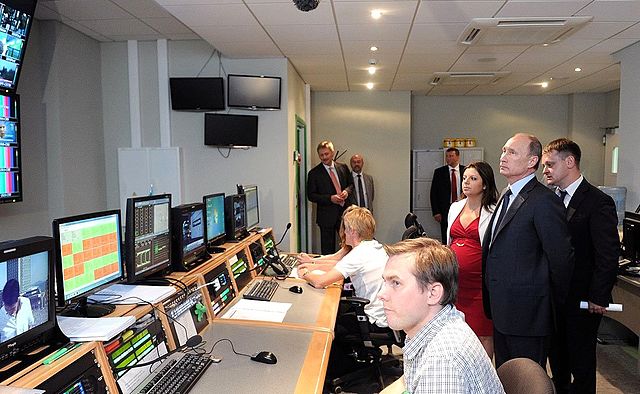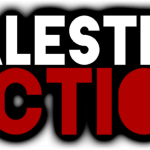The European Union Commission has officially banned two major Russian state-owned media – television network RT (formerly Russia Today) and news agency Sputnik.
The exceptional action on March 2 covered any means of transmission or distribution, such as cable, satellite, Internet Protocol television, internet service providers, video-sharing platforms and applications carrying content from RT and Sputnik. Licences, authorizations and distribution agreements were also to be suspended – targeting Sputnik as well as five legal entities of RT, formerly known as Russia Today: RT English, RT UK, RT DE for German-language reports, RT France and RT en Español for Spanish-language reports.
The move came three days after European Commission President Ursula von der Leyen called for the ban to render RT and Sputnik unable to “spread their lies to justify Putin’s war and to sow division in our Union” as part of a new package of measures aimed at Russia following its invasion of Ukraine.
Legally it was up to individual governments and their media regulators to manage media organisations in their countries and the commission admitted on February 28 that experts were looking for “the best legal base” for a ban.
On March 1 two key EU commissioners met with the European Regulators Group for Audiovisual Media Services (ERGA) to discuss the ban.
An EU official said: “We are convinced that we have our legal basis and we actually expect these measures to be challenged. We have independent courts that will review our measures if there is an application and we will defend them in court.
“[The measures] are also limited in time, because they should be maintained until the aggression is put to an end and until Russia and its media outlets cease to conduct propaganda actions against the Union and the member states.”
It will be up to national regulators to manage the ban.
And although the UK is no longer in the EU it also took RT off air on March 2.
Since the EU commission president’s call for a ban, Google’s YouTube and News Search, Facebook’s parent company Meta, and Chinese-owned TikTok have cut access to both RT and Sputnik.
Apple, Microsoft and Google scrapped them from their mobile app stores.
RT France’s Telegram channel was deactivated on March 1 in the country.
Twitter said it would take down the RT and Sputnik accounts from its platform.
The EU Commission decision was not without controversy as calls for a ban sparked debate in a number of media freedom groups about the best way to deal with propaganda and misinformation as it pits what some fear is a threat to free speech against the need to defend national and public security.
A ban on Russian media could prove counterproductive due to Kremlin retaliation, by feeding a false narrative about matching actions, and by undermining the accepted legal basis for media regulation.
The secretary-general of Reporters Without Borders (RSF), Christophe Deloire, noted before the ban that “in the short term and in a context of war, perhaps the danger of Russian propaganda justified this decision, and the European Commission had no other choice.”
Although the direct impact of Russia Today and Sputnik might be limited, he said, their content is amplified on social networks and “they were created to destabilize our democracies in a context of information warfare.”
But he pointed out that Russian President Vladimir Putin could use bans in Europe to take similar action against European journalists working in Russia and then claim each side has proceeded in the same way.
“Russia loves false symmetries, and suggesting that the media are interchangeable, in Brussels, Paris or Moscow,” Deloire said.
“This asymmetry between democratic and dictatorial informational spaces is a major issue…
The question is: how do we promote the reliability of information to avoid propaganda?”
RSF had previously noted the difference between Germany’s suspension of RT in early February for broadcasting without a licence and Russia’s retaliation in closing the Moscow bureau of German public broadcaster Deutsche Welle – as well as the difference between DW and RT as organisations.
Poland banned RT on February 24 and YouTube blocked RT in the Ukraine and suspended its ability to monetize its content on the platform globally on February 26.
The UK government had asked media regulator Ofcom to review RT’s UK broadcast licence and there have been calls to revoke it.
EU bans RT and Sputnik
UK takes RT off air
UK questions RT licence
EU’s von der Leyen calls for ban on RT and Sputnik
Is banning media the best way? – RSF secretary-general (English translation)
RSF secretary-general on banning RT (original in French)
The disinformation struggle – EU Observer
Germany bans RT – Moscow closes DW
RSF compares Russian and German actions – and DW and RT
UK media regulator to review RT licence
Calls in UK to revoke RT licence
Increasing pressure on RT
YouTube takes action against RT
EU announces new set of measures against Russia
European Federation of Journalists on censorship in Russia
RSF on targeting journalists
Reporting from inside Russia – the Moscow Times
Aljazeera looks at who’s telling the truth on Ukraine
A view from inside Ukraine

Vladimir Putin visits RT control room 2013 /www.kremlin.ru







